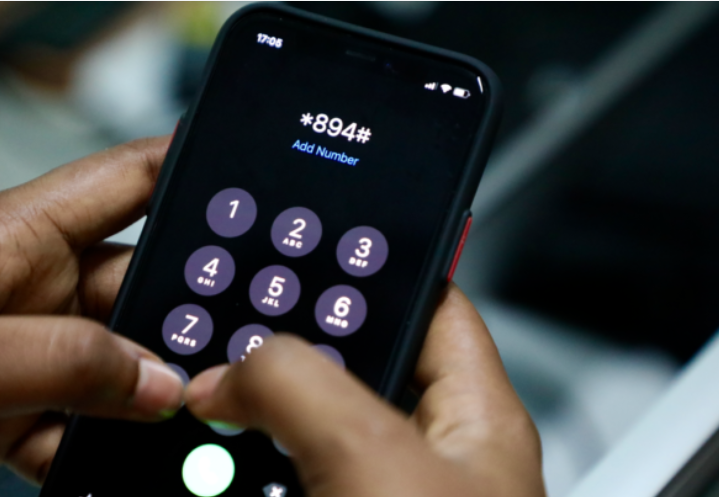Bank Customers, Phone Users Reject New USSD Airtime Charges.
- Home
- Bank Customers, Phone Users Reject New USSD Airtime Charges.

Bank Customers, Phone Users Reject New USSD Airtime Charges.
Many Nigerian bank customers and mobile phone subscribers have expressed dissatisfaction with the new billing model for USSD (Unstructured Supplementary Service Data) tr
ansactions, which officially took effect yesterday.
Under the new End-User Billing (EUB) model, users will now be charged ₦6.98 per 120 seconds for USSD sessions, with the fee deducted directly from their airtime balance instead of their bank accounts.
Dr. Uju Ogubunka, President of the Bank Customers Association of Nigeria (BCAN), criticized the move, stating that it places an additional financial burden on already overcharged customers. He argued that banks, which continue to post large profits, should absorb these costs as part of their operational expenses rather than passing them on to customers.
Ogubunka also expressed concern that such charges might discourage people from using banking services, undermining efforts to promote financial inclusion. He urged the Central Bank of Nigeria (CBN) and the Bankers’ Committee to reconsider the policy and ensure more transparency and customer engagement before implementing such decisions.
Similarly, telecom users criticized the Nigerian Communications Commission (NCC) for introducing the policy without involving subscribers in the consultation process. The Association of Telephone, Cable TV, and Internet Subscribers of Nigeria (ATCIS-Nigeria), through its President Sina Bilesanmi, described the implementation as hasty and lacking public awareness.
Bilesanmi questioned why USSD transaction fees are higher than regular SMS charges and condemned the exclusion of subscribers from key discussions.
The previous billing model—where telecom operators charged banks directly—had led to disputes over ₦250 billion in unpaid fees and disrupted services. To address this, the NCC’s 2025 policy now allows mobile network operators to charge customers directly through airtime deductions.
One of the affected banks, Guaranty Trust Bank (GTBank), notified its customers of the change via SMS, stating that USSD fees would now come from airtime instead of account balances.
The Association of Licensed Telecom Operators of Nigeria (ALTON) supported the change, saying it was done in collaboration with the CBN and aimed at creating a fairer and more sustainable system. ALTON Chairman Gbenga Adebayo emphasized that USSD remains an important tool for financial access, especially for underserved populations.
He added that customers will receive a prompt to approve charges before deductions, and billing will only occur after successful sessions—eliminating any possibility of double billing.
FCCPC to Investigate New Charges
The Federal Competition and Consumer Protection Commission (FCCPC) announced it would investigate the USSD airtime charges. The agency stressed the need for adequate public sensitization before such policies are enforced and noted the ongoing disputes between banks and telecom companies over remittances.

Content & Editorial Manager – Leads the creation, review, and publication of high-quality news and media content. She ensures that all editorial work reflects the organization’s standards of accuracy, professionalism, and relevance, while also engaging and informing the audience.
As the key driver of TokinPoint Media LTD’s editorial voice, the manager oversees content planning, assigns tasks to writers or editors, enforces deadlines, and ensures consistency across all platforms. She also plays a strategic role in aligning content with audience interests and search engine optimization (SEO) best practices.
Discover more from TokinPoint
Subscribe to get the latest posts sent to your email.
- Share
Faith Kegh
Content & Editorial Manager - Leads the creation, review, and publication of high-quality news and media content. She ensures that all editorial work reflects the organization’s standards of accuracy, professionalism, and relevance, while also engaging and informing the audience.
As the key driver of TokinPoint Media LTD's editorial voice, the manager oversees content planning, assigns tasks to writers or editors, enforces deadlines, and ensures consistency across all platforms. She also plays a strategic role in aligning content with audience interests and search engine optimization (SEO) best practices.
